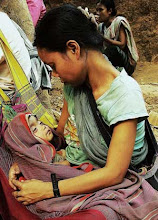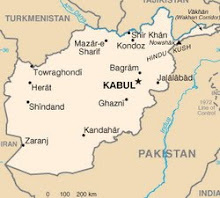 NEW DELHI-The remote, destitute state of Orissa, marred for years by Hindu versus Christian violence, has erupted in retaliatory killings after the murder of a Hindu leader led a mob to burn small Christian churches, prayer halls and an orphanage that had housed 21 children.The police said a woman’s body, charred beyond recognition, was found inside the orphanage on Monday. The church’s pastor, whom police did not identify and was injured in the fire, told the authorities that the body was that of a nun working there. No children were injured.The attack on the orphanage, in an isolated district called Bargarh, came after the killing Saturday of a Hindu leader who had been associated with the Vishwa Hindu Parishad, or World Hindu Council, and who was leading a drive to wean local villagers from Christianity. Radical Hindu groups like the council are vehemently opposed to conversions to Christianity, which in India tend to focus on traditionally downtrodden lower-caste and indigenous groups, and have lately taken to conducting mass ceremonies to reconvert them to Hinduism.The Hindu leader who was killed, Laxmanananda Saraswati, was among five people slain by unidentified armed men who stormed a Hindu school in the nearby district of Kandhamal. The police blamed the killing on Maoist insurgents who prevail in the area. Mr. Saraswati’s followers, however, blamed it on Christians, and called for a statewide strike on Monday. The state government ordered all schools closed.The Press Trust of India reported that Hindu activists, defying an official curfew in the area, paraded through the streets, attacking Christian churches and homes.Orissa has a history of Christian-Hindu strife. Fights broke out last Christmas Eve, when one person was killed and churches and temples damaged. In 1999, a Hindu mob burned alive an Australian missionary, Graham Staines, and his two children while they slept inside their car. A Hindu has been sentenced to life imprisonment in their deaths. Eleven others who had been convicted were freed by an appeals court in 2005 because of insufficient evidence. Mr. Staines ran a hospital and clinics for leprosy patients.
NEW DELHI-The remote, destitute state of Orissa, marred for years by Hindu versus Christian violence, has erupted in retaliatory killings after the murder of a Hindu leader led a mob to burn small Christian churches, prayer halls and an orphanage that had housed 21 children.The police said a woman’s body, charred beyond recognition, was found inside the orphanage on Monday. The church’s pastor, whom police did not identify and was injured in the fire, told the authorities that the body was that of a nun working there. No children were injured.The attack on the orphanage, in an isolated district called Bargarh, came after the killing Saturday of a Hindu leader who had been associated with the Vishwa Hindu Parishad, or World Hindu Council, and who was leading a drive to wean local villagers from Christianity. Radical Hindu groups like the council are vehemently opposed to conversions to Christianity, which in India tend to focus on traditionally downtrodden lower-caste and indigenous groups, and have lately taken to conducting mass ceremonies to reconvert them to Hinduism.The Hindu leader who was killed, Laxmanananda Saraswati, was among five people slain by unidentified armed men who stormed a Hindu school in the nearby district of Kandhamal. The police blamed the killing on Maoist insurgents who prevail in the area. Mr. Saraswati’s followers, however, blamed it on Christians, and called for a statewide strike on Monday. The state government ordered all schools closed.The Press Trust of India reported that Hindu activists, defying an official curfew in the area, paraded through the streets, attacking Christian churches and homes.Orissa has a history of Christian-Hindu strife. Fights broke out last Christmas Eve, when one person was killed and churches and temples damaged. In 1999, a Hindu mob burned alive an Australian missionary, Graham Staines, and his two children while they slept inside their car. A Hindu has been sentenced to life imprisonment in their deaths. Eleven others who had been convicted were freed by an appeals court in 2005 because of insufficient evidence. Mr. Staines ran a hospital and clinics for leprosy patients.By SOMINI SENGUPTA
As in the days of Noah...


























.bmp)
No comments:
Post a Comment